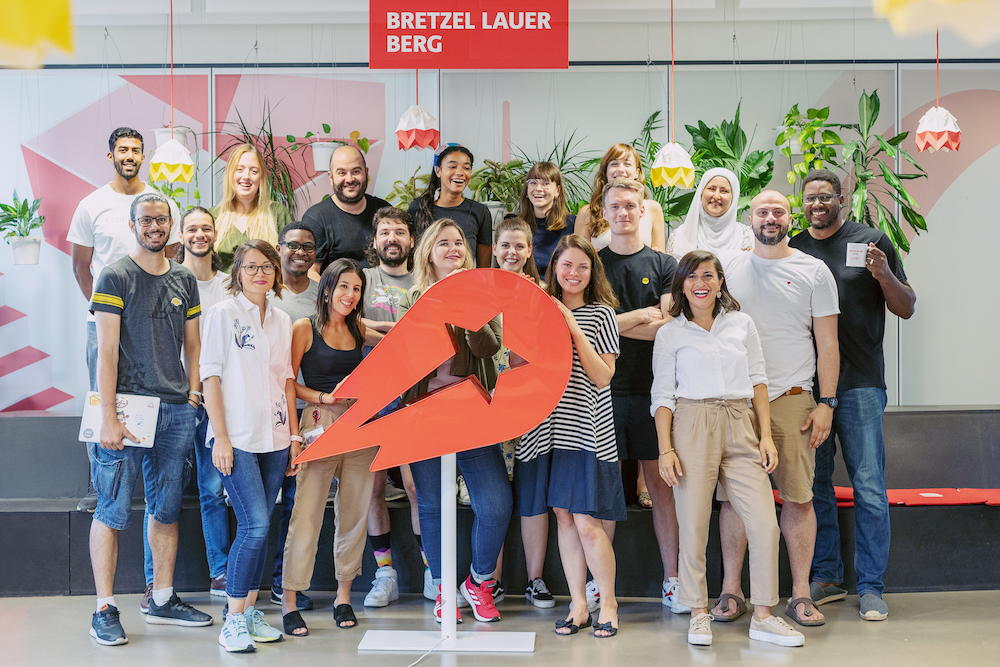You’re hungry. You’re tired. All you want is something delicious to eat while you sit on the couch and stream your favorite show. You log on to one of the platforms of Delivery Hero, browse local restaurant menus, find whatever you’re craving most—maybe it’s pizza or a cheeseburger, or both (no one’s judging!)—pay easily, and within a few clicks and a little time, your dinner is at your door. This is where tech and the food industry meet. The future of getting what you want to eat and when you want it is here.
One of the leading food-delivery platforms in the world, Delivery Hero processes over 2,000,000 orders to more than 310,000 restaurant partners every day across its 26 brands in 41 countries. To ensure your cheeseburger arrives and arrives on time is a team of more than 21,000 employees, 2,000 of whom are developers using GitHub Enterprise Cloud.
Thanks to GitHub Enterprise Cloud, Delivery Hero is able to coordinate and collaborate with its teams all over the world, all while providing a cohesive ordering experience for hungry customers wherever they are. The Cloud’s products also allow developers to focus on innovating, helping Delivery Hero grow its code and its user-base all at the same time.

Max Williams, a Principal Systems Engineer, has been building, maintaining, and designing the infrastructure of Delivery Hero for two-and-a-half years. He and his team use GitHub Enterprise every day. “It’s very difficult to imagine what Delivery Hero was like without it,” he said. In addition to engineers, the data science, product, and data engineering teams from Delivery Hero rely on GitHub. “Every single tech team in the whole company is using it to some degree,” he said.
Technology is the backbone of the fast growing business of Delivery Hero. With a goal to never let a hungry customer down, Delivery Hero needs systems that are optimized for instant delivery; systems that seamlessly connect the customers, the restaurants, and the drivers, all at the right time. From billing to marketing to customer care and restaurant operations, Delivery Hero relies on smart tech solutions, and GitHub Enterprise Cloud is the mainframe from which it all happens.
“Using GitHub Enterprise means we don’t have to manage, monitor, run, or scale anything,” said Williams. “Our code is always on the cloud, without complications.”

Christian Von Hardenberg, CTO of Delivery Hero describes the company as the “United Nations of food delivery.” Its teams are located around the world. A network of the most successful delivery companies for food, groceries, and more, joined together to exchange ideas and innovate. As Delivery Hero has grown, it has discovered that each market is different and presents its own challenges. Von Hardenberg explains that Saudi Arabia’s address systems is far different than Europe’s. There are also cultural considerations, like in Singapore, drivers can’t transport halal and non-halal dishes in the same box. And it’s all up to the tech team to identify these local needs and find solutions on one platform.
To navigate these challenges, Delivery Hero keeps local teams on the ground around the world—and uses GitHub as a central home for community, communication, and code. While each company within Delivery Hero is operating mostly autonomously, they still need to work in tandem to offer customers a smooth experience. As a core tool for collaboration, the cloud reduces the chances of miscommunication between teams, which is paramount when you’re processing two million food orders per day.
This cross-functional visibility encourages a collaborative atmosphere. No matter where the tech teams are—at HQ in central Berlin or an office in the Middle East—Williams said, “They can click a link to a pull request, and provide insight into what’s going on.” Teammates can also stay on top of pull request notifications in real time, thanks to GitHub’s Slack integration.
Using GitHub Enterprise means we don’t have to manage, monitor, run, or scale anything. Our code is always on the cloud, without complications.
In the same way GitHub Enterprise connects tech teams of Delivery Hero around the world, open source lets them leverage the benefits of what other developers have already created. Williams’ team relies on open source to set up the companies infrastructure and develop their own tools and solutions within their code base. “If you’re a modern tech company, using open source is the default,” said Williams. While he’s worked with other Enterprise software, he’s found it unreliable and expensive; open source software, on the other hand, “is just much more efficient and faster.” Plus, it allows him and his team to get instant support and answers. “Because you’re part of a bigger picture, you can lean on the community for help and inspiration,” he said.
Delivery Hero relies on automation to free up developers, so they can focus on more challenging tasks. For example, by using GitHub and Travis CI together, they can compile documentation from its repositories and publish it automatically to its website. Williams explained that “This process of committing, merging, and automatically reloading documentation allows us to have it live really quickly.”
To further automate processes and reduce manual work, Delivery Hero uses Atlantis, a third-party automation tool that leverages the GitHub API to hook into pull requests. “It scans our code, and if the code meets the criteria, it will run analyses and post back to GitHub via the API with comments and results,” he said. This ensures that everyone working on a codebase, from Europe to Latin America, has the same shared set of processes around contributing.

With such a sprawling global network, security is mandatory and always top of mind for Delivery Hero. And this is another place where automation gives the team peace of mind and room to innovate elsewhere. Williams and his team use Dependabot, automated fixes built in to GitHub Enterprise. “You have to be aware of what’s going on in the industry, like vulnerabilities and new problems,” said Williams. Dependabot monitors a project’s dependencies for security vulnerabilities, then automatically opens pull requests to update the dependency. “It helps us write more secure code,” Williams said.
As Williams expands his team and Delivery Hero continues to grow across the globe, he makes a point to review new candidates’ GitHub profiles. What they’ve contributed in the past speaks to what they can offer Delivery Hero today. “For me,” said Williams, “When I’m looking at a potential candidate, I expect that they’ve used GitHub.”
In the end, Williams compares working without GitHub Enterprise to using computers without screens. It’s just that essential to his everyday work. As he looks forward, he is excited to try GitHub innovations, like GitHub Actions, to streamline his workflows even more and eliminate the need for third-party tools. The more efficiently he can work, the faster customers—wherever they are in the world—can get that late-night cheeseburger (flowers, groceries, pharmaceuticals or even pet food) in record time.



